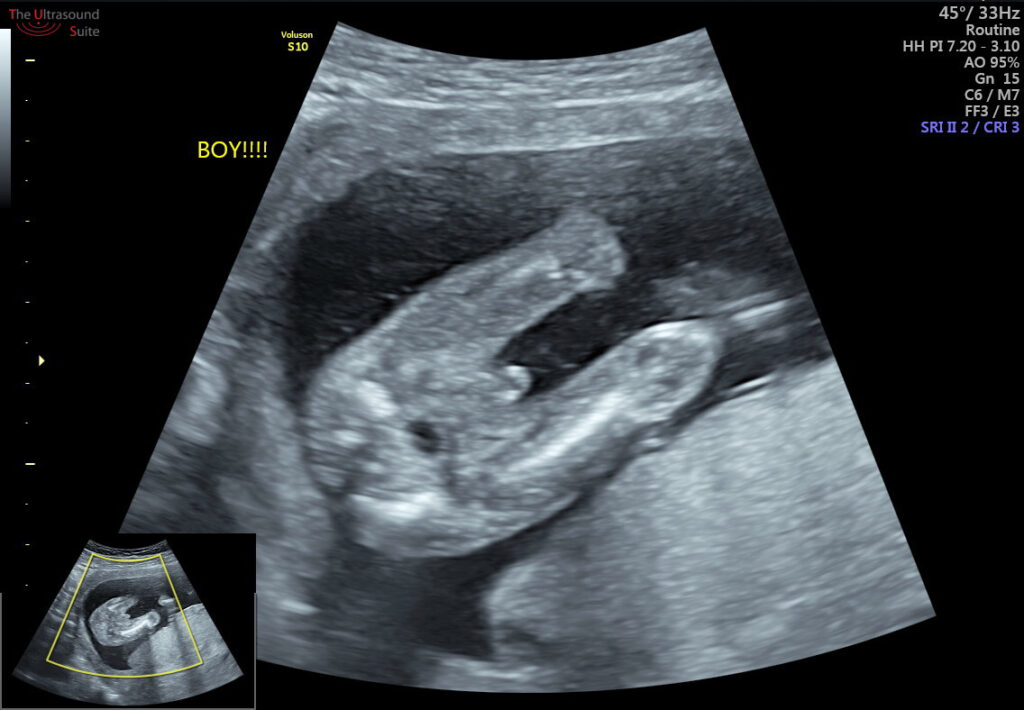
Table of Contents
Introduction
One of the most exciting things when you’re pregnant is finding out the gender of your baby. Knowing whether you’re having a boy or a girl can help you prepare for their arrival, and can also help you choose a name and decorate the nursery. But when exactly is baby gender developed? In this post, we’ll explore the different stages of fetal development and when you can expect to find out your baby’s gender.
Stages of Fetal Development
The development of a fetus is a complex process that occurs over the course of nine months. During this time, the fetus undergoes several key stages of development, each of which is marked by significant changes in its anatomy and physiology. Here are the four main stages of fetal development:
Stage 1: The Zygote Stage
The zygote stage is the very beginning of fetal development. It starts when sperm and egg meet and fuse to form a single cell, called a zygote. At this stage, the zygote contains all the genetic information that will determine the baby’s sex, eye color, hair color, and so on. However, it’s not yet possible to tell the baby’s gender from the zygote alone.
Stage 2: The Embryonic Stage
The embryonic stage begins at around week 2 of pregnancy and lasts until the end of the eighth week. During this time, the zygote undergoes rapid cell division and differentiation, which leads to the formation of major organs and body systems. It’s during this stage that the baby’s reproductive system begins to develop. However, it’s still too early to tell the baby’s gender.
Stage 3: The Fetal Stage
The fetal stage begins at the end of the eighth week of pregnancy and lasts until birth. During this time, the fetus grows and matures, and its organs and body systems become fully functional. It’s during this stage that the baby’s gender can be detected through ultrasound, amniocentesis or chorionic villus sampling (CVS).
Stage 4: The Late Fetal Stage
The late fetal stage typically begins around week 36 of pregnancy and lasts until birth. During this time, the baby’s body systems mature and prepare for life outside the womb. It’s during this stage that the baby usually settles into a head-down position in preparation for birth.
When Can You Find Out Your Baby’s Gender?
Now that we know the different stages of fetal development, let’s explore when you can expect to find out your baby’s gender. There are three main ways to determine the gender of a baby:
Ultrasound
An ultrasound is a non-invasive medical procedure that uses high-frequency sound waves to produce images of the developing fetus. Ultrasounds are typically performed between weeks 18 and 22 of pregnancy, and can usually detect the baby’s gender with a high degree of accuracy. However, there is still a small chance that the ultrasound could be wrong.
Amniocentesis
Amniocentesis is an invasive medical procedure that involves taking a small sample of the amniotic fluid that surrounds the developing fetus. This sample can be analyzed to determine the baby’s gender, as well as to screen for genetic disorders. Amniocentesis is typically performed between weeks 15 and 20 of pregnancy, and is usually only recommended if there is a high risk of genetic disorders. While amniocentesis is highly accurate, there is a small risk of complications, such as infection, miscarriage, or injury to the fetus.
Chorionic Villus Sampling (CVS)
Chorionic villus sampling (CVS) is another invasive medical procedure that involves taking a small sample of the placenta, which is the organ that connects the fetus to the mother’s uterus. This sample can be analyzed to determine the baby’s gender, as well as to screen for genetic disorders. CVS is typically performed between weeks 10 and 13 of pregnancy, and is usually only recommended if there is a high risk of genetic disorders. While CVS is highly accurate, there is a small risk of complications, such as infection, miscarriage, or injury to the fetus.
Frequently Asked Questions
How accurate are ultrasounds for determining the baby’s gender?
Ultrasounds are generally between 95% and 99% accurate in determining the baby’s gender.
Can the baby’s gender be determined earlier than 18 weeks with an ultrasound?
No, it’s not possible to determine the baby’s gender with an ultrasound before 18 weeks of pregnancy.
Is it possible for an ultrasound to be wrong about the baby’s gender?
Yes, although it’s rare, there is still a small chance that an ultrasound could be wrong about the baby’s gender.
Can the baby’s gender be determined through a blood test?
Yes, there are some blood tests that can detect fetal DNA in the mother’s bloodstream and determine the baby’s gender. However, these tests are not as accurate as ultrasound, and are usually only done in high-risk pregnancies.
What happens if the baby’s gender is not what I was expecting?
Finding out the baby’s gender can be an exciting and emotional experience. If the baby’s gender is not what you were expecting, it’s normal to feel a range of emotions. It’s important to remember that the baby’s gender does not define their personality, interests, or abilities. Whether you’re having a boy or a girl, your child will be unique and wonderful in their own way.In conclusion, the development of a fetus is a complex process that occurs over the course of nine months. The baby’s gender can be detected through ultrasound, amniocentesis or chorionic villus sampling (CVS). While these procedures do carry some risks, they are generally safe and highly accurate. Whether you’re having a boy or a girl, your child will be a unique and wonderful addition to your family. So sit back, relax, and enjoy the ride!
